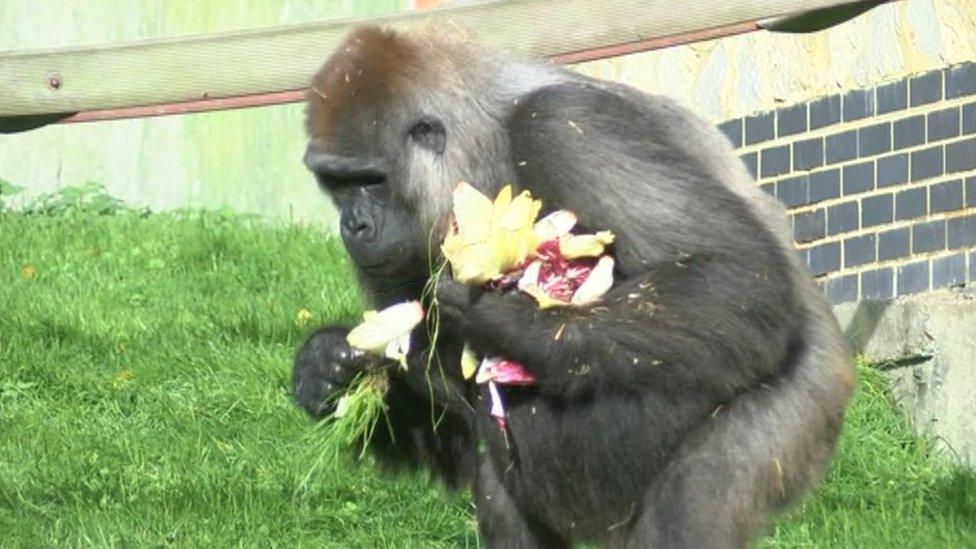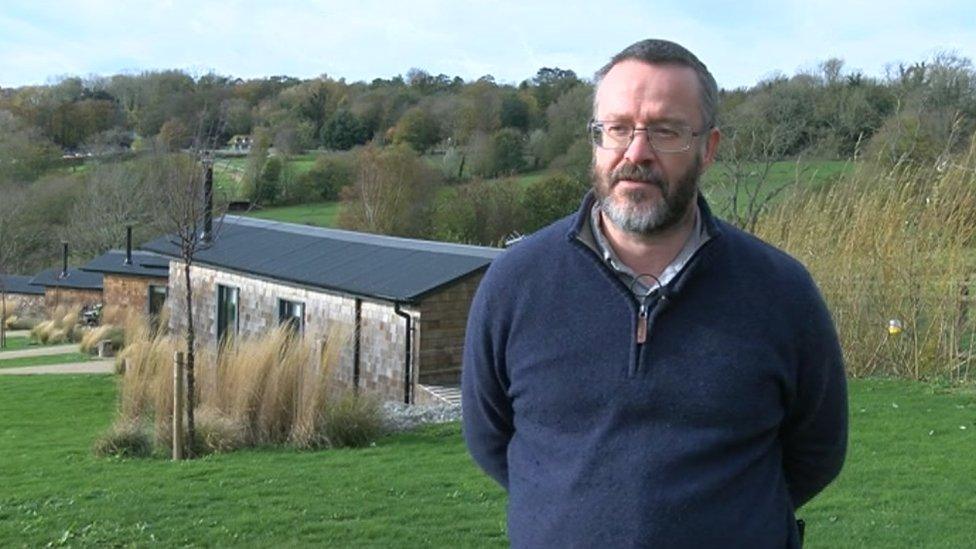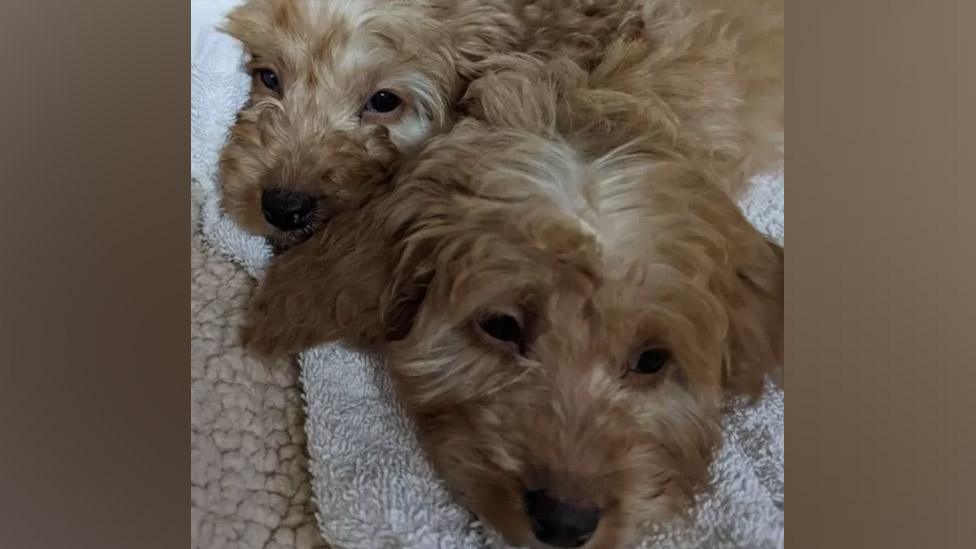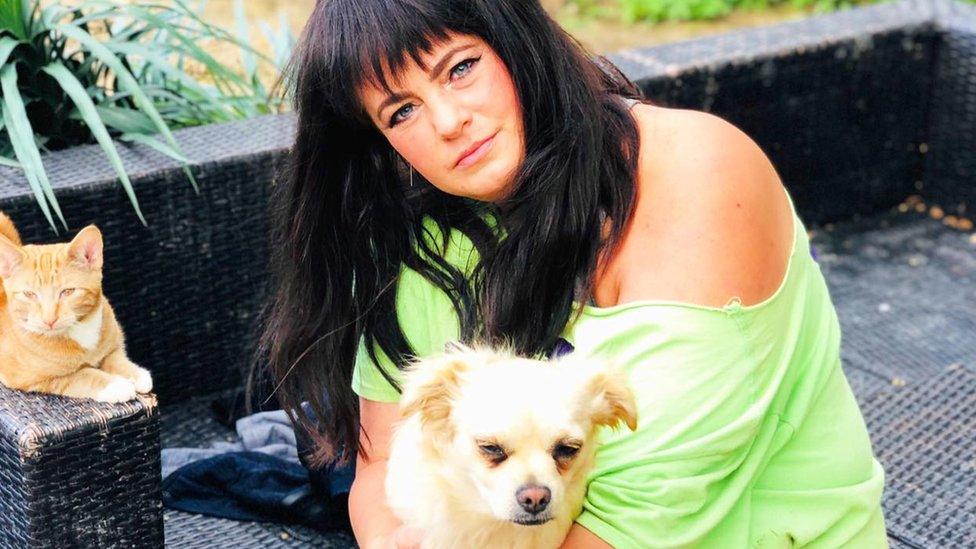Cost of living: Kent animal reserve food bill up by £130,000
- Published

Port Lympne Reserve in Kent houses critically endangered western lowland gorillas
The food bill at an animal reserve in Kent has risen by more than £130,000 since the cost of living crisis.
The spend at Port Lympne Hotel and Reserve in Hythe was budgeted to be £476,000 in the first 10 months of the year.
However, their actual costs reached £610,000 - a total of £134,000 more than expected.
The animal director says the "massive increase" in bills has been made harder by a significant downturn in visitors.

Simon Jeffery, animal director, says the cost of food has rapidly increased
The cost to feed small primates alone at the reserve has increased by £1,000 a week, the park says.
The reserve says the price of mealworms has risen by 497%, while the cost of onions and melons have increased by 51% and 59% respectively.
Simon Jeffery, animal director at Port Lympne, said: "We've seen a significant increase since cost of living has really kicked in on the amount of food we're buying in.
"I'd say we're probably £130,000 to £160,000 up on last year already."
All enclosures at the reserve, which is home to 900 rare and endangered animals, are also heated.
"There's 650 acres here, and the animal enclosures particularly are all heated with oil and Calor gas," Howletts and Port Lympne Estates managing director, Tony Kelly said.
The park said it was fortunate to have a fixed rate electricity tariff, but the costs of other fuels and animal foods had rapidly increased, Mr Kelly said.
"Those prices are going up, and we've had to bear the brunt of that."
Mr Kelly says two years of increased turnover boosted by staycations have helped balance the increased costs, but the park fears declining visitor numbers.
He added: "While we've had some increase in energy costs so far, we're not as bad as it could've been, and not as bad as it may get, if things aren't sorted out by September next year."

Follow BBC South East on Facebook, external, on Twitter, external, and on Instagram, external. Send your story ideas to southeasttoday@bbc.co.uk, external.
Related topics
- Published15 November 2022

- Published8 September 2021
